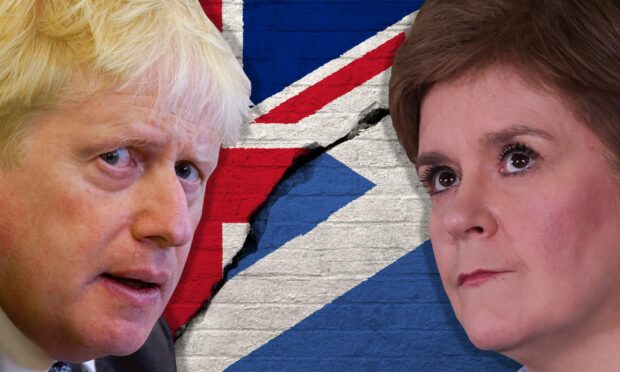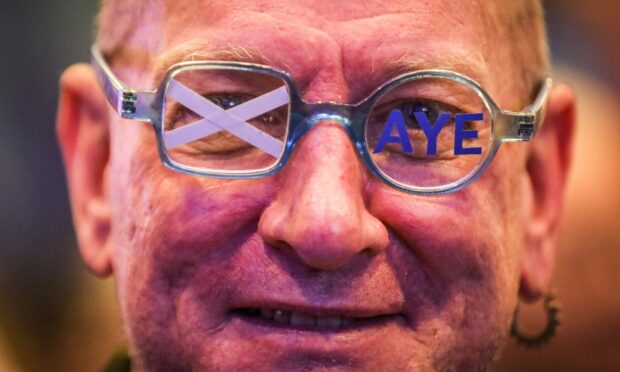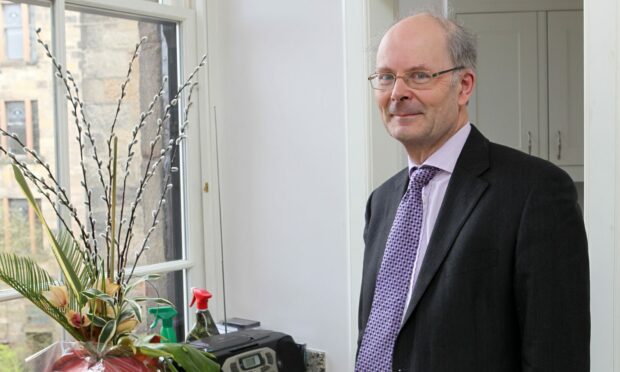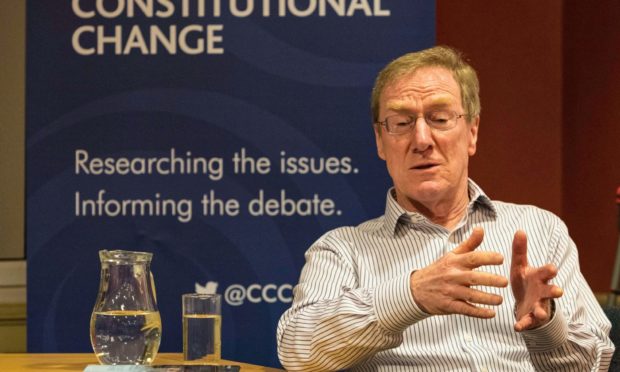Has the SNP “missed the boat” on holding an independence referendum with Boris Johnson as prime minister?
Key figures in the Yes camp often pointed to the Tory leader as one of their key “recruiting sergeants” because of his dismal popularity ratings in Scotland.
But experts are divided on how his departure – whether it comes in August or sooner – will impact support for breaking away from the rest of the UK.
De facto referendum ‘no longer credible’
Professor James Mitchell, chair of public policy at Edinburgh University, argued the prime minister’s resignation “undermines the case for independence”.
He believes the SNP could struggle to direct some of the criticisms levied at Mr Johnson towards whoever is chosen as his successor.
The expert also warned Nicola Sturgeon’s push for the next general election to be fought as a de facto referendum is now “unlikely to be seen as credible”.
He said this is because following Mr Johnson’s resignation, it will instead be viewed by the public as a battle to see who governs the whole of the UK.
“One of the questions will be the extent to which the public will view this whole episode as evidence that the UK is in chaos,” Mr Mitchell said.
“Much of that will depend on what the Labour Party does and how they perceive Keir Starmer.
“I think it’s going to be difficult for the SNP to say the Tories will be in power forever. It’s been clear for a while that Labour have the advantage.
“The SNP have missed the boat and their opportunity has probably passed.”
‘It’s the policies that matter’
Polling expert Professor Sir John Curtice argued that Mr Johnson’s policies, rather than his personality, are what drove a surge in support for independence.
Asked what impact his resignation will have on Scotland’s desire to break away, the Strathclyde University academic said “zilch”.
Sir John added that there is no evidence support for independence increased while the prime minister’s popularity fell.
“Boris matters as a politician, not as a personality,” he said.
“He matters because he is, above all, the person who delivered Brexit. It is Brexit that has put the constitutional question back on the agenda.
“Boris is fundamental but it is what he has done in office that matters. People are not voting for independence because they dislike Boris Johnson.”
Sir John said the style of Mr Johnson’s government has been an issue, and that the effectiveness of the next Tory leader as an advocate for the Union could be important.
Tory leaders ‘don’t understand Scotland’
Michael Keating, chair of Scottish politics at Aberdeen University and director of the Centre on Constitutional Change, agreed support for independence “doesn’t seem to depend much on Boris Johnson”.
He claimed the prime minister “doesn’t understand Scotland” and that this is “typical” of Conservative leaders at Westminster.
“There’s no evidence really that he understood Scotland – and maybe didn’t get the best advice on dealing with Scotland,” Mr Keating said.
“But it’s deeper than the personality of Johnson, I think.
“There’s some confusion in the Conservative Party and the government about how exactly to deal with Scotland.”
What will the next PM do?
Mr Keating said ministers are often unsure whether to take a “hard line approach” or go about “love bombing” Scotland through city deals and shared prosperity funds.
He said both of these go on simultaneously, along with confusion over whether to bypass the Scottish Government entirely or make concessions on the constitution.
“Having a big presence for the UK Government in Scotland seems to be an important part of their strategy,” Mr Keating said.
“That is probably going to go on whoever is the next leader of the party.”
He added that while he does not believe the next prime minister will concede to a referendum, “what else they will do is open to question”.
‘He’s an undertaker – not a caretaker’: Boris Johnson slammed by Tayside and Fife politicians



